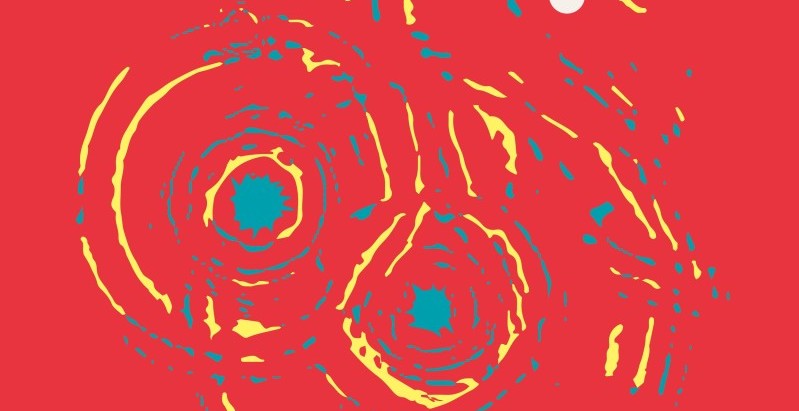Translating Race: Bruna Dantas Lobato on Jeferson Tenório’s The Dark Side of Skin
“I let the racialized language live in the novel as it ought to, to stand as is.”
I translated and revised most of Jeferson Tenório’s The Dark Side of Skin while staying with a friend in Brooklyn, New York, for an impromptu residency. I drank too much coffee and typed all afternoon, until I could no longer process the emotions in the book and had to stop for the day.
After dinner, each night, my friend and I walked her dog to the park, and that was my chance to see the cherry blossoms in bloom, people-watch, get some fresh air, and think about something else. Instead, all I did was think about my translation of this book. Bits of dialogue that sounded too stiff, too formal, too dry. Sounds I had yet to capture. Metaphors I hadn’t figured out how to land.
As we walked by the bougie kosher coffee shops in Crown Heights, I talked to my friend about this book she hadn’t read, by an author she didn’t know, in a language she didn’t speak, from a country she’d never visited. From the outside, it might have looked futile, but every time we talked answers came to me.
Translation (and writing) has a way of inserting itself into my daily life: phrases will come to me in the shower, while I wash the dishes, while I chop vegetables for dinner, or sip wine with a friend. My body relaxes and my mind tunes to a character’s voice like a radio.
On one of those nights, while my friend’s dog ran free in the off-leash area, I talked about struggling to find the right translation of the title. The original title “O avesso da pele” sounds almost anatomical to me, the way Kerry James Marshall’s painting “Beauty Examined” manages to be both an aesthetic and sociological experience, a painting of a nude “female blk subject” posing as scientific illustration. It sounds both academic and artistic, both figurative and literal: it evoked the opposite of skin and racism, made me imagine someone with their skin put on inside out.
“The Opposite of Skin” captures one half of the meaning but not the other. Same for “Flipside of the Skin,” “Under the Skin,” “Behind the Skin.” They were all too literal, too easy and insufficient, too light. Earlier that day, before our walk, I’d reread parts of Frantz Fanon’s Black Skin, White Masks, I told my friend, looking for a solution, something to do with wearing one’s own skin like a disguise, wearing a Black skin in a white world. Her dog ran back to where we stood and sat by our feet. We watched a tiny chihuahua sniff a stranger’s shoes, a Pitbull walk by in a Knicks dog jersey, a child zoom by on a scooter. It was a lovely spring evening in a quiet corner of the city.
“It sounds like a very dark book,” my friend finally said, and I nodded. And then it hit me: The Dark Side of Skin. It’s further from the original than some of the other options, less literal, more metaphorical (with no “the” before “skin”), and this is exactly what makes it work as a title. It’s as idiomatic in English as “O avesso da pele” is in Portuguese, and it’s just as urgent, unapologetically direct, sure of itself, with the word “dark” carrying more than one meaning. It sets the right tone for the book, gives it the right amount of weight and gravity, and sounds just like something Henrique might have said on my translation radio.
Part of me would love for the issues in this book to be simpler, less painful.I tried to maintain a similar slow-burning sense of urgency throughout the book as I revised my translation. Black people in Brazil are disproportionately killed by police: in 2020, the year the book was originally published, 78 percent of the people murdered by police in Brazil were Black. In October of that year, George Floyd was murdered in the US. A month later, João Alberto Silveira Freitas was murdered by white security guards at a Carrefour in Porto Alegre, the same city where Henrique lived and died.
Literature has historically replicated this disproportion, indeed, this erasure. According to data collected by the University of Brasília, 90 percent of the books published in Brazil between 1965 and 2014 are by white writers. Only 4.5 percent of the protagonists of all novels published in Brazil between 2004 and 2014 were Black (though they represent 50 percent of the population), and most of them are incarcerated, enslaved, or doing domestic or sex work—or else fully idealized, perfect community members always in service of others, unaffected by social issues, the exception to the rule. Tenório’s Henrique is neither of those extremes.
Instead, he is a regular man, imperfect and beloved, contradictory and misunderstood. His passion for canonical literature, his commitment to teaching, his complicated relationship to women, his struggles with his racial identity, his shortcomings as a father, the good and the bad, only make him all the more human, and therefore all the more needed.
Finally, one last thing kept me up at night and required multiple walks to the park as I revised this book: whether to capitalize “Black,” as is the norm in the US, where I live. The New York Times and major news organizations like the Associated Press have been capitalizing all instances of “Black” in the racial and cultural sense since 2020.
Soon after, Kwame Anthony Appiah published an op-ed in The Atlantic making a case for the capitalization of “White” as an identity rather than a color. US racial terms, with their shifting connotations, don’t always correspond to the racial debate in Brazil. Ultimately, after much back and forth with the editors and author of this book, I decided not to impose these expectations or conventions on the Brazilian text, on the characters’ world and experiences. Their experiences don’t need my intervention.
I told my friend on one of our walks about our decision, my wise and patient friend who housed me and fed me and let me talk her ears off as I worked on this book: “We’re going to honor the racialized language in the original. I don’t want to sanitize it, or make it more palatable to an English-speaking audience for the sake of it.” She asked, “But you wanted to, didn’t you?” I nodded. Yes, I did.
Part of me would love for the issues in this book to be simpler, less painful. Instead, I let the racialized language live in the novel as it ought to, to stand as is. It was the best I could do at this point in time, at this point in history. My greatest hope is that years from now I’d make a different choice.
__________________________________

From The Dark Side of Skin by Jeferson Tenório, translated by Bruna Dantas Lobato. Copyright © 2024. Available from Charco Press.




















